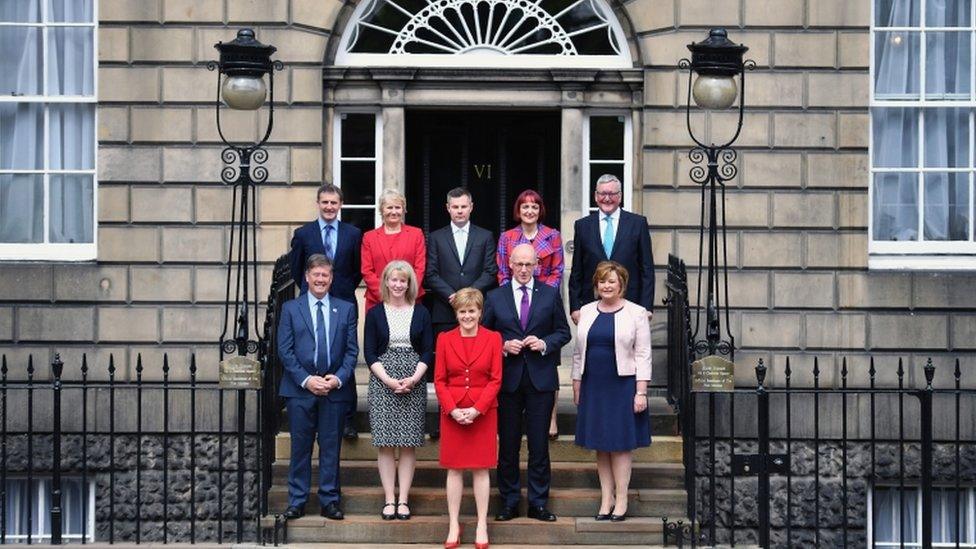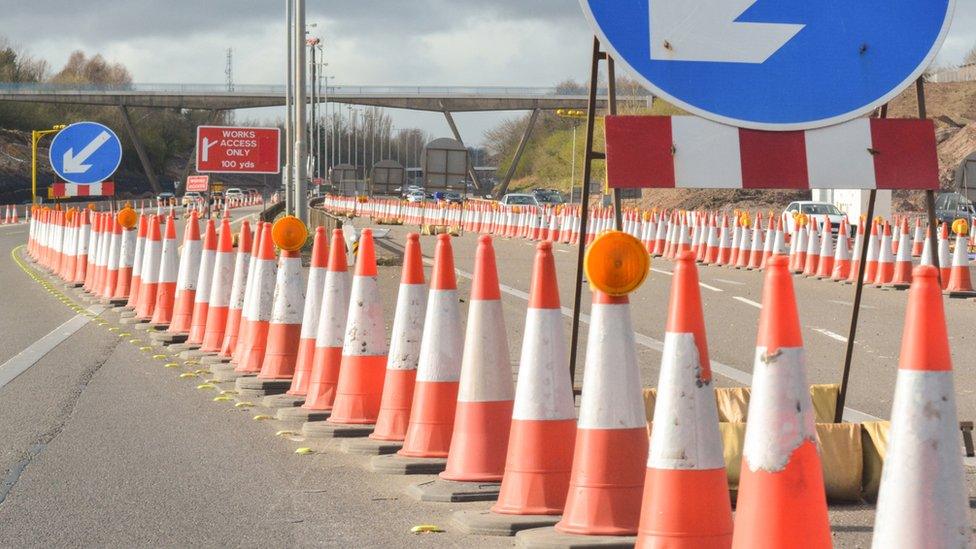Getting a handle on the new cabinet
- Published

The new shape of the Scottish Cabinet, as posed for photographs on the steps of Bute House, has implications for the way government handles business and the economy.
New tax powers mean a new finance role, carved out from the vast array of things that John Swinney has been doing for the past nine years. That's one for Derek Mackay, who is highly rated by the First Minister.
That will be important to determining the future direction of tax policy as income tax is devolved.
He also gets the constitution brief, which obviously matters to SNP ministers and members. But as Mr Swinney remains deputy first minister, he will surely continue to have a role in that too.
And Mr Swinney also takes in skills, which is a very significant part of what government can do about economic growth.
What else can it do? Business bosses will tell you a crucial bit of government's role in the economy is to get the planning system working.
That's not with the economy brief, of which Keith Brown is now in charge, but with a new portfolio called "communities, social security and equalities". Angela Constance has moved to that from education.

Then there's transport. That seems to be split. The infrastructure spending bit falls into Mr Brown's new economy brief.
But the less chunky bits of transport - from air routes to bus fares - appear to be for Fergus Ewing, which fits a bit oddly with his rural affairs role.
Mr Ewing and his fishing and farming officials will also be pushing for wider and faster reach for "connectivity". Again, broadband is far from being only a rural issue.
And for those with an interest in the rural economy, that too is going in different directions. The environment is a big deal for farmers and renewable energy developers. Land reform will continue to shake up country estates. They are now grouped with climate change under Roseanna Cunningham's charge.
And tourism gets promoted to a special mention in a job description. It's now in with culture, tourism and external affairs, with Fiona Hyslop in charge.
It's arguable whether tourism deserves special status, apart from the wider economy. It can help it by giving it special attention, and in this case, it clearly fits with the arts and overseas promotion. But there's more to tourism that fits with the economy, skills, connectivity, the environment and planning.
If you're interested in tourism development, for instance, that means you'll have to speak to six cabinet ministers, as well as the finance minister and first minister. You probably won't have to deal with Michael Matheson at justice or Shona Robison at health.
It would be best not to overstate this fractured business and economy portfolio. As Brian Taylor has pointed out, the configuration of jobs reflects priorities. And government priorities change.
More significantly, the way the Scottish government's cabinet has worked under SNP management has been much less about departmental battling than it was before, and than it remains in Westminster. SNP ministers will tell you they're a close-knit bunch and not given to battling with each other.
However, one factor that is getting closer to Westminster is the role of a finance minister, as tax-setter, purse-bearer, gate-keeper and progress-chaser. In governments around the world, that has a habit of gaining a lot of power at the expense of others.